-
 Bitcoin
Bitcoin $105,185.0222
-2.35% -
 Ethereum
Ethereum $2,530.9127
-7.54% -
 Tether USDt
Tether USDt $1.0004
0.02% -
 XRP
XRP $2.1334
-4.79% -
 BNB
BNB $651.2884
-1.72% -
 Solana
Solana $145.3326
-7.75% -
 USDC
USDC $0.9997
-0.01% -
 Dogecoin
Dogecoin $0.1769
-5.64% -
 TRON
TRON $0.2693
-1.64% -
 Cardano
Cardano $0.6325
-7.03% -
 Hyperliquid
Hyperliquid $40.5973
-4.58% -
 Sui
Sui $3.0228
-9.21% -
 Chainlink
Chainlink $13.1589
-8.35% -
 Bitcoin Cash
Bitcoin Cash $433.5167
-0.81% -
 UNUS SED LEO
UNUS SED LEO $9.0344
1.96% -
 Avalanche
Avalanche $19.0874
-8.76% -
 Stellar
Stellar $0.2581
-5.56% -
 Toncoin
Toncoin $2.9795
-6.23% -
 Shiba Inu
Shiba Inu $0.0...01189
-5.12% -
 Hedera
Hedera $0.1556
-7.28% -
 Litecoin
Litecoin $84.5521
-4.68% -
 Polkadot
Polkadot $3.7768
-6.59% -
 Ethena USDe
Ethena USDe $1.0002
-0.02% -
 Monero
Monero $309.8669
-5.04% -
 Dai
Dai $0.9997
-0.02% -
 Bitget Token
Bitget Token $4.5091
-3.15% -
 Uniswap
Uniswap $7.4994
-5.08% -
 Pepe
Pepe $0.0...01080
-10.34% -
 Aave
Aave $282.7576
-6.18% -
 Pi
Pi $0.5644
-9.37%
How to use Bitcoin wallet private key
By storing your private key securely offline, such as on a hardware wallet, USB drive, or paper wallet, you can minimize the risk of unauthorized access and maintain control over your Bitcoin assets.
Jan 12, 2025 at 06:47 pm

Key Points:
- The importance of securing your Bitcoin wallet private key
- Best practices for storing your private key
- Methods for recovering or resetting a lost private key
- Steps to safely generate a new private key
- Common mistakes to avoid when handling your private key
How to Use Bitcoin Wallet Private Key
Bitcoin's security architecture is built on the principle of public-private key cryptography, with each user possessing a public address and a corresponding private key. The private key acts as the control center for any associated Bitcoin transactions, enabling the user to authorize and manage all operations.
1. Secure Storage of Private Keys
- Hardware Wallets: Dedicated devices designed specifically for storing private keys offline, providing enhanced security against malware and hacking attempts.
- Cold Storage: Encrypting the private key and storing it on an offline device, such as a USB drive or paper wallet, to minimize exposure to potential vulnerabilities.
- Splitting Keys: Breaking up the private key into multiple fragments and storing them separately, enhancing resilience against single points of failure.
2. Recovering or Resetting a Lost Private Key
- Backup: Regularly creating backups of your private key in multiple secure locations ensures recovery in case of device failure or data loss.
- Seed Phrase: Generating a set of mnemonic words that serve as a backup for the private key, allowing for recovery through a secure recovery process.
- Service Providers: Some cryptocurrency exchanges or wallet services offer account recovery options by providing extra layers of security through multi-factor authentication or social recovery processes.
3. Generating a New Private Key
- Software Wallets: Bitcoin software wallets, such as Electrum or Armory, provide an option to generate a new private key within the application.
- Hardware Wallets: Most hardware wallets also allow the generation of new private keys directly on the device, enhancing security by keeping the process offline.
- Paper Wallets: Generating a new key using a paper wallet service involves creating a print-out of the private and public keys, which can be secured as a physical asset.
4. Common Mistakes to Avoid
- Sharing Private Keys: Never reveal your private key to anyone, as it grants complete control over your Bitcoin assets.
Storing Keys Online: Avoid storing private keys on connected devices that may be vulnerable to hacking or malware.
Reason:Online storage methods expose your private keys to potential security threats and hacking attempts.Solution:Use offline storage methods, such as hardware wallets or cold storage, to keep your private keys safe from cyberattacks.
Reusing Private Keys: Using the same private key for multiple addresses can compromise the security of all associated funds.
Reason:Reusing private keys creates vulnerable points of attack for malicious actors to access and compromise your Bitcoin assets.Solution:Always generate new private keys for each new Bitcoin address you create, ensuring enhanced security and minimizing the risk of funds theft.
Unverified Code: Downloading and using unverified wallet software or recovery tools can introduce severe security risks.
Reason:Unverified code may contain malicious scripts or hidden vulnerabilities that can compromise your private keys and lead to funds loss.Solution:Only use reputable and well-established wallet software and recovery tools to ensure the integrity and security of your private keys.
FAQs:
1. What happens if I lose my private key?
If you lose your private key, you will permanently lose access to the Bitcoin associated with that wallet address. Recovery is only possible if you have created a backup or have seed phrase recovery options enabled.
2. How often should I change my private key?
There is no definitive rule for changing private keys, but it is generally recommended to generate a new key periodically, especially if there is a significant increase in the value of the Bitcoin stored in the associated wallet.
3. Is it necessary to store my private key on multiple devices?
Creating multiple backups of your private key on different devices is highly recommended. This redundancy ensures that you can recover your funds even if one of the devices is lost, damaged, or compromised.
4. Can I reveal my private key to someone I trust?
Never share your private key with anyone, even someone you trust. The private key provides full access to your Bitcoin assets, and if it falls into the wrong hands, it can result in the theft of your funds.
5. How do I know if my private key is secure?
To ensure the security of your private key, store it offline on a hardware wallet or paper wallet, avoid sharing it, and opt for reputable wallet software and recovery tools. Regularly monitoring your wallet for suspicious activity is also crucial.
Disclaimer:info@kdj.com
The information provided is not trading advice. kdj.com does not assume any responsibility for any investments made based on the information provided in this article. Cryptocurrencies are highly volatile and it is highly recommended that you invest with caution after thorough research!
If you believe that the content used on this website infringes your copyright, please contact us immediately (info@kdj.com) and we will delete it promptly.
- The Next Floki Inu? Why Arctic Pablo Coin ($APC) Could Be the Next Big Meme Coin
- 2025-06-14 02:50:12
- Top 3 Cryptocurrency Presales to Buy Now in 2025: Nexchain, WeWake Finance, and Aigent Network
- 2025-06-14 02:50:12
- 1976 Bicentennial Quarter Could Be Worth $2.5 Billion
- 2025-06-14 02:45:12
- Trove of 1,720 “Napoléons” gold coins discovered in a modest stone house
- 2025-06-14 02:45:12
- Ethereum (ETH) ETF Inflows Hit 4-Month Highs, BlackRock's iShares Ethereum Trust (ETHA) Dominates
- 2025-06-14 02:40:12
- Bitcoin Price (BTC Price) Fell Down to USD 1,08,000 Today
- 2025-06-14 02:40:12
Related knowledge
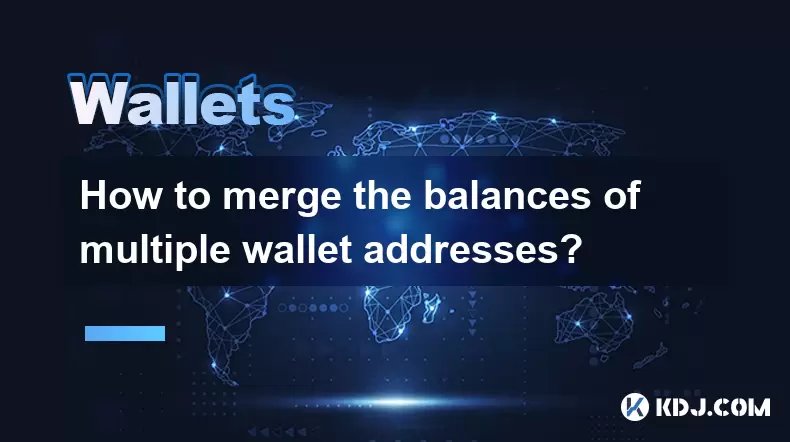
How to merge the balances of multiple wallet addresses?
Jun 13,2025 at 06:21pm
Understanding the Concept of Merging Wallet BalancesMerging the balances of multiple wallet addresses involves consolidating funds from different cryptocurrency wallets into a single address or account. This process is commonly undertaken by users who manage several wallets for security, diversification, or organizational purposes. Merging balances can ...
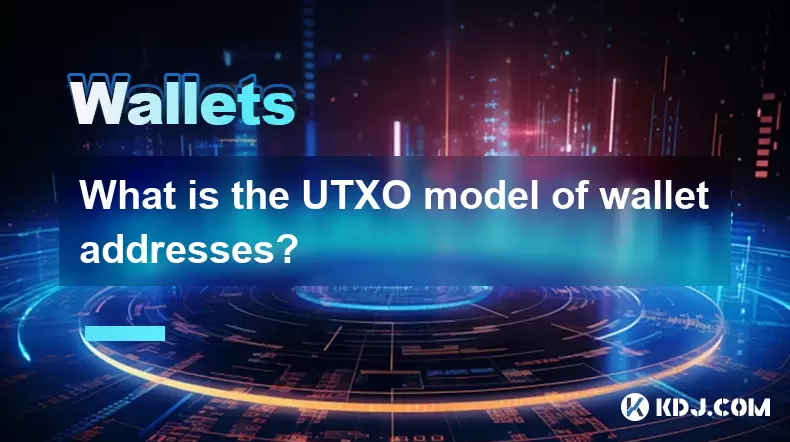
What is the UTXO model of wallet addresses?
Jun 14,2025 at 03:01am
Understanding the UTXO Model in CryptocurrencyThe UTXO (Unspent Transaction Output) model is a fundamental concept in blockchain technology, particularly in cryptocurrencies like Bitcoin. Unlike account-based models used by some other blockchains, such as Ethereum, the UTXO model functions more like physical cash transactions. Each transaction consumes ...
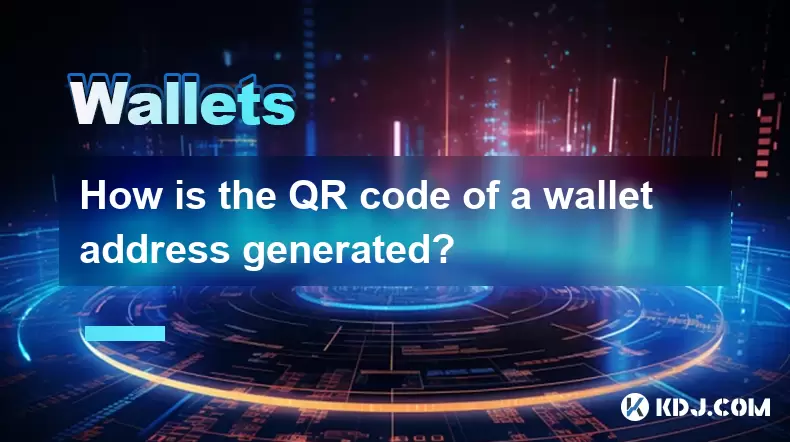
How is the QR code of a wallet address generated?
Jun 13,2025 at 10:49pm
Understanding the Basics of a Wallet AddressA wallet address is a unique identifier used in blockchain networks to send and receive cryptocurrencies. It is derived from a pair of cryptographic keys — a private key and a public key. The private key is kept secret and grants control over the funds, while the public key is used to generate the wallet addre...
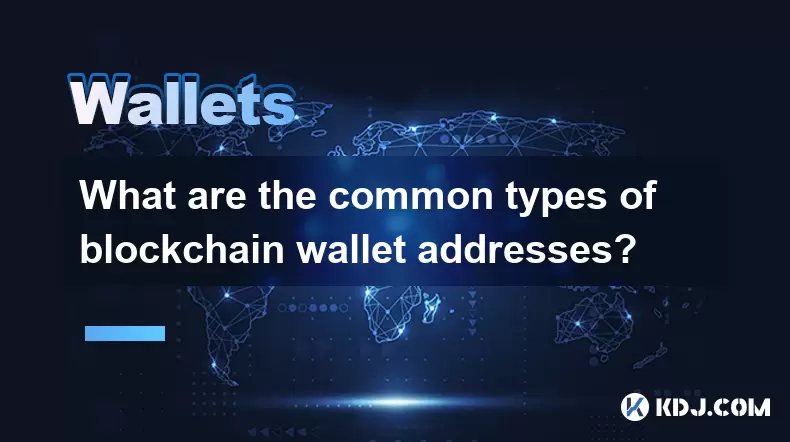
What are the common types of blockchain wallet addresses?
Jun 13,2025 at 10:56pm
What Are the Common Types of Blockchain Wallet Addresses?Blockchain wallet addresses are unique identifiers that enable users to send and receive cryptocurrencies securely. Each blockchain network has its own standards for generating these addresses, which vary in format, structure, and cryptographic algorithms. Bitcoin (BTC) Wallet AddressesBitcoin use...
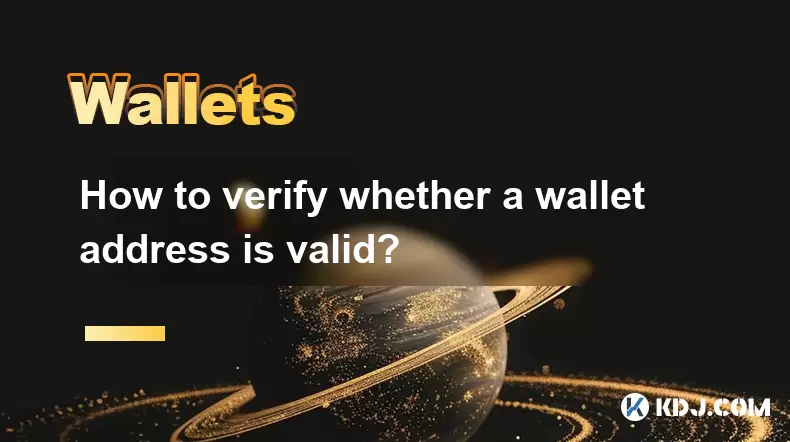
How to verify whether a wallet address is valid?
Jun 13,2025 at 05:08pm
Understanding the Basics of Wallet Address ValidationA wallet address is a unique identifier used in blockchain networks to send and receive cryptocurrency. Verifying whether a wallet address is valid is crucial for ensuring that transactions are executed correctly and securely. The validation process involves checking the structure, format, and checksu...
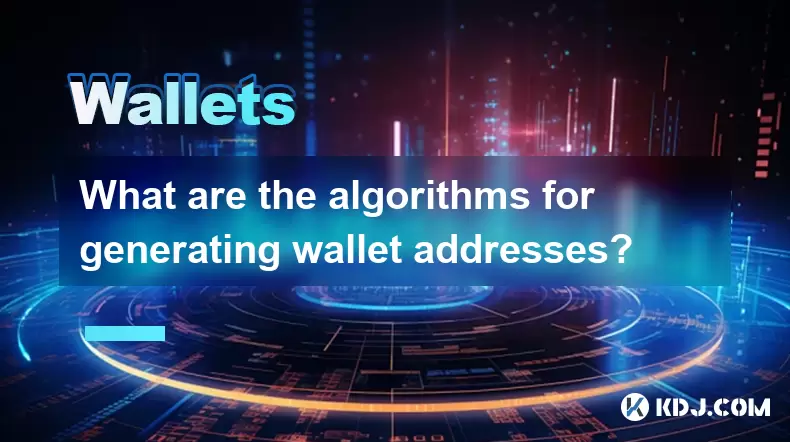
What are the algorithms for generating wallet addresses?
Jun 14,2025 at 02:50am
Understanding Wallet Address Generation AlgorithmsA wallet address is a unique identifier used in blockchain networks to send and receive digital assets. Behind every wallet address lies a cryptographic algorithm that ensures security, uniqueness, and traceability. The generation of these addresses involves multiple layers of encryption and hashing func...

How to merge the balances of multiple wallet addresses?
Jun 13,2025 at 06:21pm
Understanding the Concept of Merging Wallet BalancesMerging the balances of multiple wallet addresses involves consolidating funds from different cryptocurrency wallets into a single address or account. This process is commonly undertaken by users who manage several wallets for security, diversification, or organizational purposes. Merging balances can ...

What is the UTXO model of wallet addresses?
Jun 14,2025 at 03:01am
Understanding the UTXO Model in CryptocurrencyThe UTXO (Unspent Transaction Output) model is a fundamental concept in blockchain technology, particularly in cryptocurrencies like Bitcoin. Unlike account-based models used by some other blockchains, such as Ethereum, the UTXO model functions more like physical cash transactions. Each transaction consumes ...

How is the QR code of a wallet address generated?
Jun 13,2025 at 10:49pm
Understanding the Basics of a Wallet AddressA wallet address is a unique identifier used in blockchain networks to send and receive cryptocurrencies. It is derived from a pair of cryptographic keys — a private key and a public key. The private key is kept secret and grants control over the funds, while the public key is used to generate the wallet addre...

What are the common types of blockchain wallet addresses?
Jun 13,2025 at 10:56pm
What Are the Common Types of Blockchain Wallet Addresses?Blockchain wallet addresses are unique identifiers that enable users to send and receive cryptocurrencies securely. Each blockchain network has its own standards for generating these addresses, which vary in format, structure, and cryptographic algorithms. Bitcoin (BTC) Wallet AddressesBitcoin use...

How to verify whether a wallet address is valid?
Jun 13,2025 at 05:08pm
Understanding the Basics of Wallet Address ValidationA wallet address is a unique identifier used in blockchain networks to send and receive cryptocurrency. Verifying whether a wallet address is valid is crucial for ensuring that transactions are executed correctly and securely. The validation process involves checking the structure, format, and checksu...

What are the algorithms for generating wallet addresses?
Jun 14,2025 at 02:50am
Understanding Wallet Address Generation AlgorithmsA wallet address is a unique identifier used in blockchain networks to send and receive digital assets. Behind every wallet address lies a cryptographic algorithm that ensures security, uniqueness, and traceability. The generation of these addresses involves multiple layers of encryption and hashing func...
See all articles

























































































